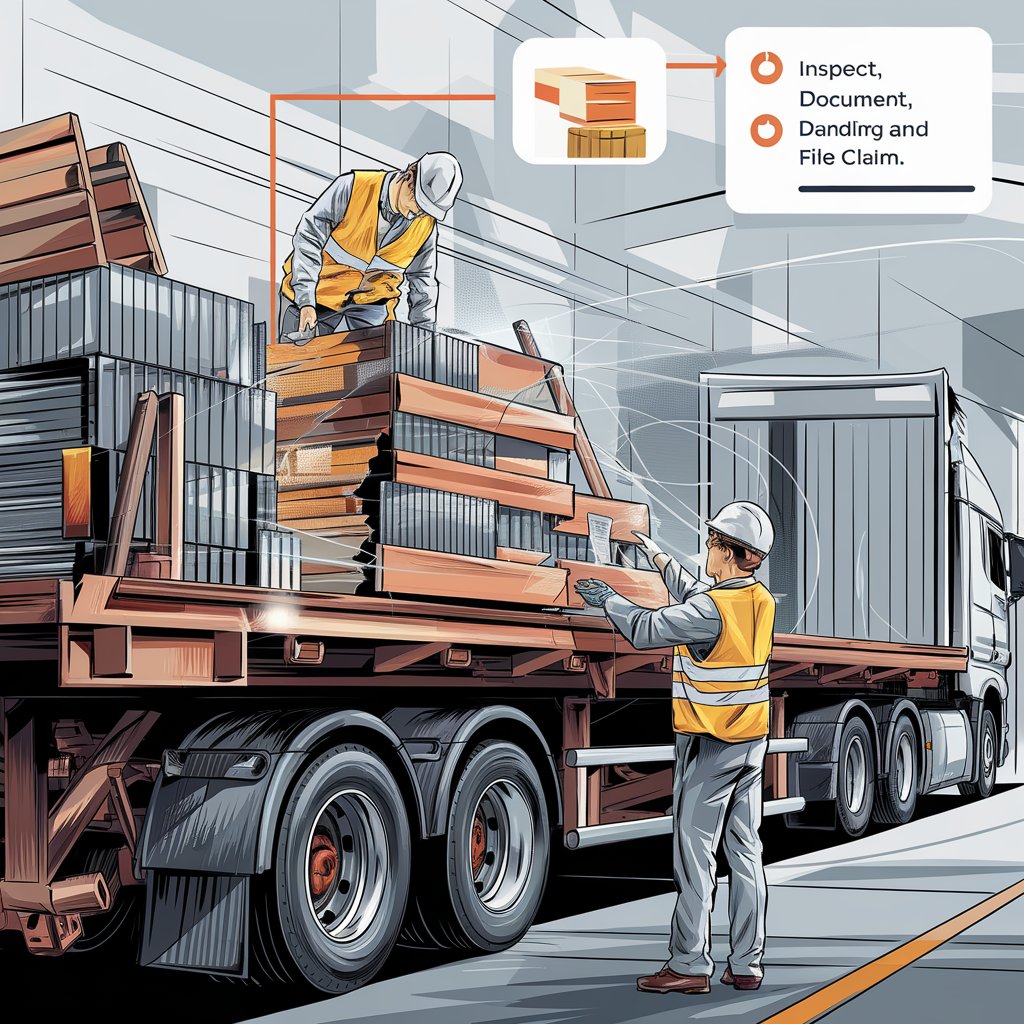What to Do If Your Brokered Load Is Damaged: A Step-by-Step Guide

Understanding Brokered Loads and Freight Damage
Before diving into the specifics of what to do if your brokered load is damaged, it’s important to understand the context. Brokered loads involve a freight broker who arranges shipments between shippers and carriers. This three-way relationship can complicate matters when freight damage occurs.
Common causes of freight damage include:
- Poor packaging
- Improper loading techniques
- Accidents during transit
- Mishandling during loading or unloading
Regardless of the cause, knowing how to respond when you discover damage is crucial for all parties involved.
Immediate Actions to Take When You Discover Damage
If you find yourself wondering what to do if your brokered load is damaged, follow these immediate steps:
- Inspect the Damage: Conduct a thorough inspection of the freight as soon as damage is discovered. Look for any visible signs of damage, no matter how minor they may seem.
- Do Not Move or Alter the Load: It’s crucial to leave the damaged load in its current state until it has been properly documented. Moving or altering the load could complicate the claims process.
- Notify All Parties Immediately: Contact the freight broker, carrier, and shipper as soon as possible to report the damage. Clear and immediate communication is key when dealing with damaged brokered loads.
Documenting the Damage
Proper documentation is critical when figuring out what to do if your brokered load is damaged. Follow these tips:
- Take clear photos and videos from multiple angles, showing the extent of the damage and any apparent causes.
- Record relevant details such as the date, time, location, and any observable factors that may have contributed to the damage.
- Save all paperwork, including the bill of lading, delivery receipts, and any other relevant documents.

Filing a Freight Claim
When your brokered load is damaged, filing a freight claim is a crucial step:
- Prepare a written claim that includes details of the damage, the estimated value of the loss, and all supporting documentation.
- Submit the claim promptly, typically within the carrier’s specified time frame (usually 9 months from the date of delivery, but earlier is better).
- Work closely with the freight broker, who can assist in facilitating the claim between the shipper and carrier.
Understanding Liability and Insurance Coverage
Knowing who’s responsible is essential when determining what to do if your brokered load is damaged:
- Carriers are generally liable for cargo while it’s in their possession, with some exceptions like “Acts of God” or inadequate packaging.
- Brokers typically don’t assume liability for damage but can assist in resolving claims.
- Ensure adequate insurance coverage is in place, either through the shipper’s cargo insurance, the carrier’s liability coverage, or additional freight insurance purchased through the broker.

Preventing Future Damage to Brokered Loads
To minimize the risk of having to deal with damaged brokered loads in the future:
- Ensure proper packaging using suitable materials and methods for the type of freight.
- Work with brokers who partner with reputable carriers known for careful freight handling.
- Clearly communicate any special handling requirements and include them in shipping documents.
What to Expect During the Claims Process
When your brokered load is damaged and you’ve filed a claim:
- Be prepared for a potentially lengthy process, which may involve negotiations and partial compensation.
- Stay patient but thorough in following up on your claim to ensure proper processing.

Conclusion
Knowing what to do if your brokered load is damaged is crucial for efficient claims handling and minimizing losses. By acting promptly, documenting thoroughly, and communicating clearly with all parties involved, you can navigate the complexities of freight damage claims successfully. Remember to be proactive in preventing damage and understand your rights and responsibilities throughout the process.
Are you looking for more support in managing your logistics and preventing freight damage? Explore Linbis’s comprehensive logistics solutions, including advanced shipment tracking, claims management tools, and partnerships with reliable brokers and carriers. Let us help you minimize risks and optimize your supply chain operations.
